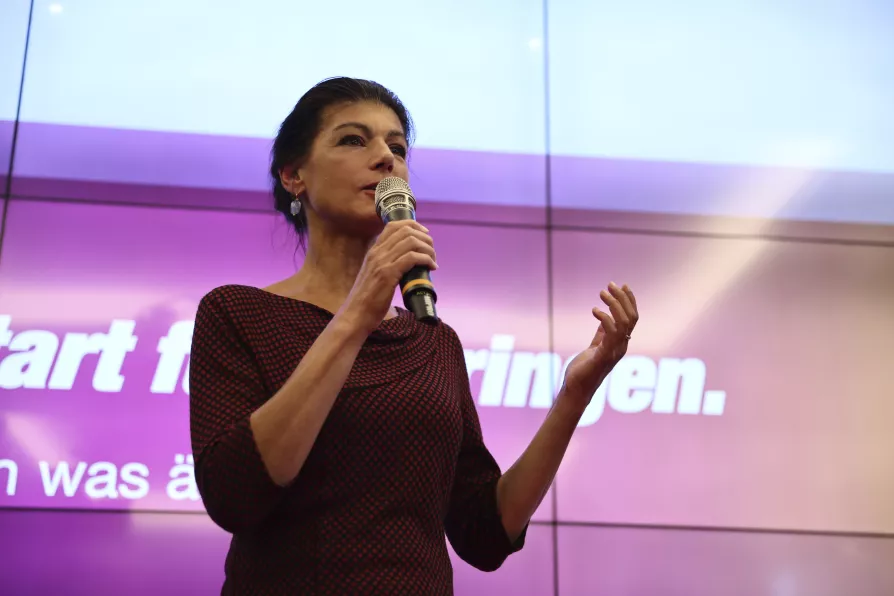New German left party looks set to keep far-right from gaining power in Thuringia

 BSW party chairwoman Sahra Wagenknecht speaks at the BSW election party after the first exit polls for the state elections in Thuringia and Saxony are released, in Erfurt, Germany, September 1, 2024
[Christoph Soeder/dpa via AP]
BSW party chairwoman Sahra Wagenknecht speaks at the BSW election party after the first exit polls for the state elections in Thuringia and Saxony are released, in Erfurt, Germany, September 1, 2024
[Christoph Soeder/dpa via AP]
SAHRA WAGENKNECHT and her new left-wing alliance, BSW, look set to keep the far-right Alternative for Germany (AfD) from gaining power in Thuringia — despite the AfD’s victory in Sunday’s state election.
The success of the AfD in two state elections piled new pressure on Chancellor Olaf Scholz’s struggling government.
Chancellor Scholz described the results as “worrying.”
Similar stories

In the recent federal elections the far-right AfD was able to reach sections of the working class on issues over which the left is divided and unable to articulate a coherent position, a situation that is replicated in a number of other European countries, argues NICK WRIGHT













